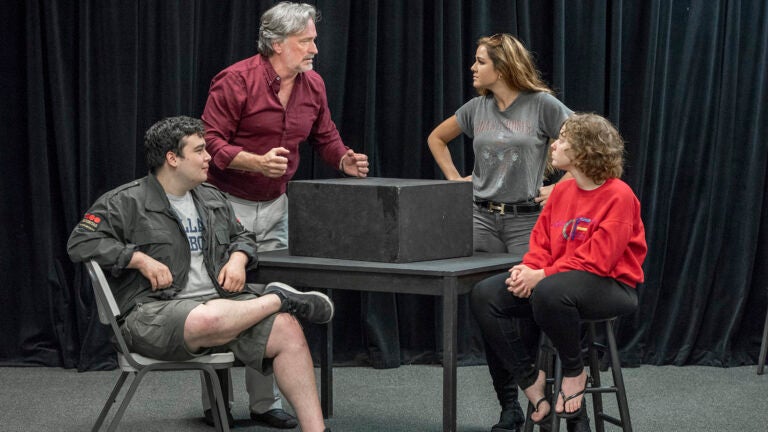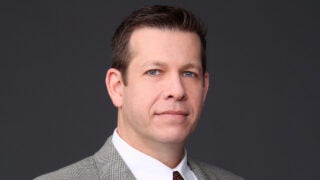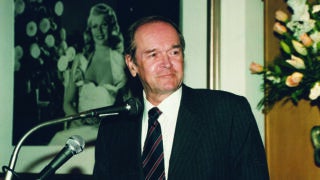
Drama draws audience in for honest talk about diversity, equity and inclusion
Student and faculty actors of the Institute for Theatre & Social Change at the USC School of Dramatic Arts bring stories of discrimination to life. Then it’s the audience’s turn to speak up.
The day after watching a performance on microaggressions and harassment, two student-athletes walked up to USC theater Professor Brent Blair and offered a two-word review: “That’s real.” These students hadn’t participated in the interactive performance the day before, but Blair could see the session had an impact on them.
For nearly 30 years, Blair has taught students to convey emotion inspired by real-world experiences on stage at the USC School of Dramatic Arts. But through the Institute for Theatre & Social Change, Blair and his troupe of student and faculty actors are bringing real stories of discrimination to life in hopes of sparking meaningful dialogue.
“A lot of the work of the institute is democratizing the art form so that everyone has access to this incredibly powerful vehicle for immediate education,” Blair said.
Diversity training uses arts for social change
Blair launched ITSC in 2018 to create a forum for expressive and interactive dramatic practices around education, therapy and social justice. Though these performances are a way to engage with diversity, equity and inclusion issues, Blair is quick to point out that this is not simply a live version of those “HR videos we all have to watch.” Instead, the audience — whom he calls “spect-actors” — are thrown into the scenes to provide a truly immersive experience that touches on major issues.
Recently ITSC worked with USC Athletics to construct short scenes on microaggressions experienced among students and staff. From questioning masculinity in the locker room to dismissing women’s sports altogether, the scenes’ themes originated from real-life experiences of athletes.
The scene the students approached Blair about, for instance, involved two male athletes talking about seeking therapy for their mental health. In the scene, a third player then ridiculed the two students and told them to “man up.” Then different “spect-actors” replayed the scene, improvising each time to give everyone a slightly different experience.
Anita Dashiell-Sparks, a professor of theater practice who helped run the workshop, noted that there was no right or wrong way to respond.
It’s a way of finding — not necessarily solutions that will resolve everything, but different pathways and strategies of intervention.
Anita Dashiell-Sparks,
USC School of Dramatic Arts
“It’s a way of finding — not necessarily solutions that will resolve everything, but different pathways and strategies of intervention,” said Dashiell-Sparks, who also serves as associate dean of equity, diversity and inclusion for the School of Dramatic Arts.
“Through our power of our empathy, we really can understand what it’s like to be in somebody else’s shoes.”
Though these scenes focused on athletes, the same principles can be applied across all areas of the university and beyond, Blair says.
Megan O’Toole, who earned a bachelor’s degree in performance and is a master’s student in arts leadership at the USC Thornton School of Music, got involved with the institute after taking a class with Blair. As someone with a theater background — she runs the Long Beach Landmark Theatre Company — O’Toole said her work with ITSC has been some of her most fulfilling work at USC and in theater.
DEI training: Making barriers fall
“I think there is an amazing aspect to this form of theater in making barriers fall very quickly,” she said. “A lot of times as actors we think we’re presenting issues, but we’re not bringing participation to the level of somebody else’s input or personal experience.”
Other projects from the institute include the Act Together project, which works with LAC+USC Adult Care Clinics to create theatricalized case consultations, as well as the Restorative Justice project. The latter collaborates with the USC Price School of Public Policy to address the issue of mass incarceration, as well as with the community-based Healing Dialogue and Action, a nonprofit whose members are formerly incarcerated people and survivors of violent crime.
I want to work with everybody. I want to onboard every single student who comes into USC.
Brent Blair, Institute
for Theatre & Social Change
Outside of athletics, Blair has conducted similar events with the USC Suzanne Dworak-Peck School of Social Work and the USC Mrs. T. H. Chan Division of Occupational Science and Occupational Therapy. But Blair doesn’t want to stop there.
“I want to work with everybody,” Blair said. “I want to onboard every single student who comes into USC on issues of cultural identity, privilege, cultural awareness, literacy, and just life as a USC student using theater.”
Watch this video from the Institute for Theatre & Social Change:



